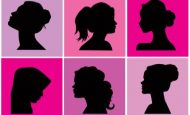Submission to the UNHRC 40th Session - The Exploitation of Palestinian Women’s Rights
Full Article
Click to view the official submission
[Excerpts]
In his report, the Special Rapporteur on the situation of human rights defenders importantly reviews the situation of women human rights defenders and the “additional gendered risks and obstacles” they face. Unfortunately, in his discussion of the state of affairs for Palestinian women human right defenders, the Special Rapporteur provides misleading information to proclaim individuals who have promoted and engaged in violence and antisemitism as human rights defenders in violation of the eligible criteria.
Under Resolution 5/1 establishing special procedures, Special Rapporteurs are required to exhibit personal integrity, expertise, independence, impartiality, and objectivity. These criteria demand that Special Rapporteurs and other mandate holders must uphold the principles of universal human rights and are to refrain from the dissemination or aiding and abetting of expressions of discrimination, including antisemitism, promotion of violence, or incitement to violence. In order to meet the UN’s definition of “Who is a defender,” two of the criteria are “accepting the universality of human rights” and “peaceful action.” An individual may not be considered a human rights defender if she denies “some human rights” but claims “to be a human rights defender because he or she is an advocate for others.”
The United Nations High Commissioner for Human Rights’ report on Israeli settlements in the Occupied Palestinian Territory, including East Jerusalem, and the occupied Syrian Golan is similarly flawed.
Today, there are dozens of local Palestinian NGOs meant to serve the needs of women from various sectors of society. However, NGO Monitor research and analysis reveals that many of these organizations unfortunately utilize their platform on women’s issues to promote politicized narratives that are often rejectionist and violent, many times to the detriment of gender equality within Palestinian society. This trend can be largely attributed to a subordination of gender equality and/or female empowerment to Palestinian political agendas. This problematic phenomenon frequently leads to a disproportionate and exclusive focus on Israel as the cause of gender inequality, while not paying adequate attention to internal, systemic practices within Palestinian society that are discriminatory against women.
For example, the Special Rapporteur claims that “In the Occupied Palestinian Territory, women defenders have faced severe restrictions on their activities, including limitations on funding, and have been subject to the excessive use of force when they engage in peaceful protests” (emphasis added). In May 2017, the WATC inaugurated a youth center in the town of Burqa, near Nablus. The center is named after Dalal Mughrabi, a terrorist who in 1978 murdered 37 civilians, including 12 children. Funding for this building was provided by Norway, United Nations Entity for Gender Equality and the Empowerment of Women (UN Women), and the Palestinian Authority Ministry of Local Government. Both Norway and UN Women strongly condemned the use of their funding for this center. Norwegian Minister of Foreign Affairs Børge Brende stated that “We have asked for the logo of the Norwegian representation office to be removed from the building immediately, and for the funding that has been allocated to the centre to be repaid.” Denmark – which provided funding to the NGO via the Human Rights and International Humanitarian Law Secretariat – pulled funding and demanded that WATC return the Danish aid.

